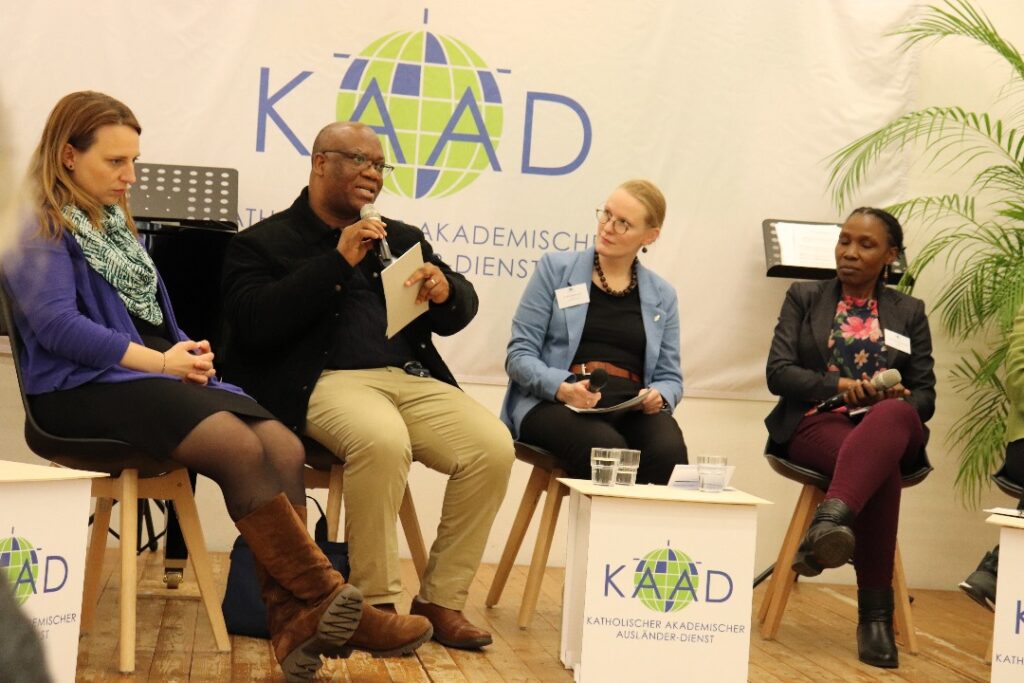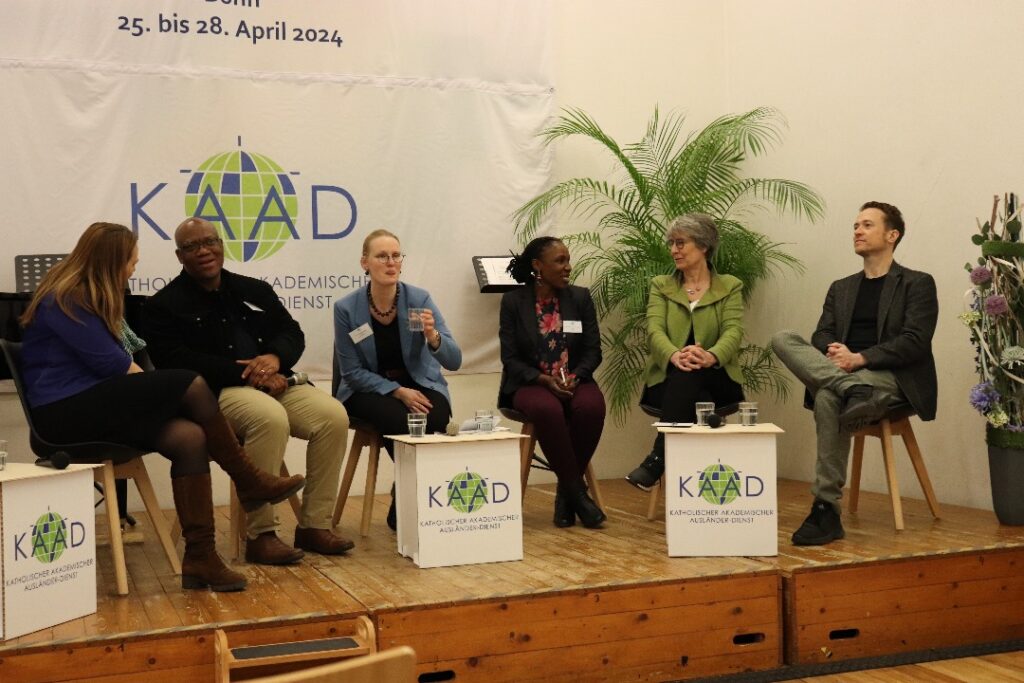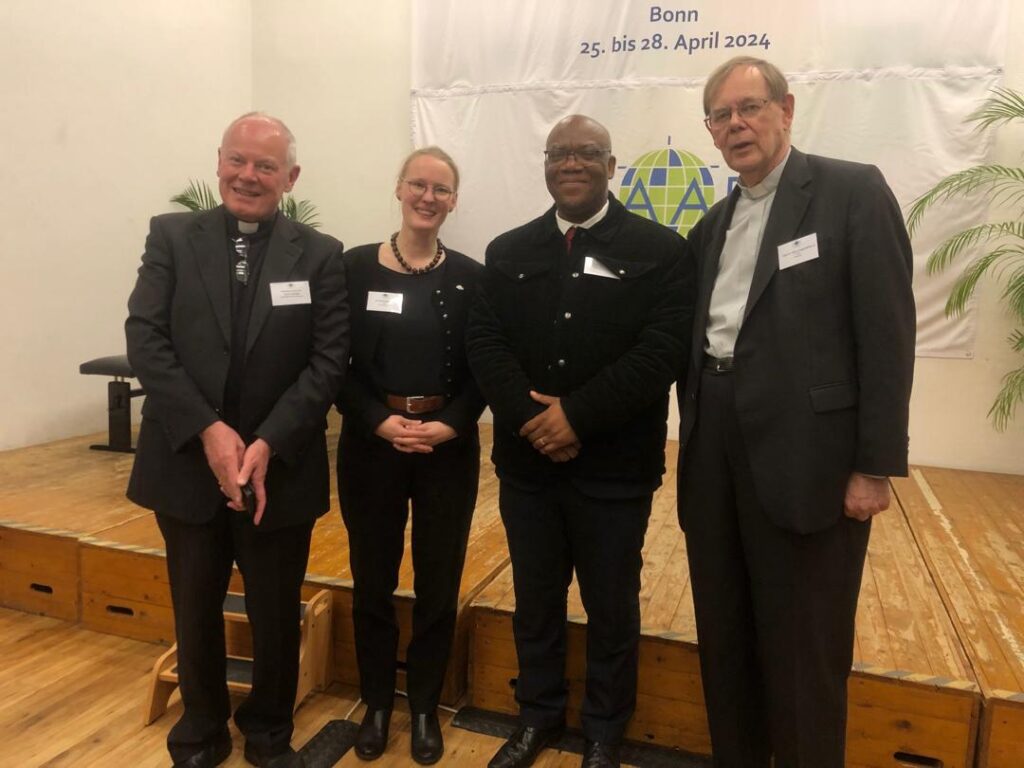Prof. Jerry John Kponyo, Principal Investigator and Scientific Director of the Responsible Artificial Intelligence Lab (RAIL) and Co-Founder of Responsible AI Network (RAIN) Africa, delivered a presentation on “A Brave New World: AI and the Global South” at the 37th Annual Academy of the Catholic Academic Foreigners Service (KAAD) on 26th April 2024 at Bonn Germany.
Prof. Kponyo emphasised the importance of ensuring fairness in AI algorithms and datasets to prevent the promotion of social prejudices against certain groups of people. He addressed ethical challenges associated with AI, such as algorithm bias, privacy concerns, and transparency. He stressed the need for responsible AI design that aligns with societal values and respects human rights.

Prof Kponyo highlighted how AI can impact the economy through job creation, transforming old jobs into new fields, and promoting remote jobs through global competitiveness. He mentioned three critical enablers for AI: infrastructure, data, and talent. He advocated for countries to focus on these areas to create a conducive environment for AI to thrive.
Prof. Kponyo discussed AI projects undertaken at RAIL in health agriculture, energy, and the ethical and responsible use of AI. He also introduced the RAIL Robotics Club for JHS/SHS and the SHECodes club initiative for female students at KNUST.
Emphasising the need for strategic positioning of Africa to harness the positives of AI while guarding against the negatives, he highlighted the opportunities for collaboration in AI research and the importance of creating Afrocentric datasets.
“AI must be applied responsibly, considering people and society,” he reiterated.

Other panellists at the conference included experts such as Dr. Manuela Lenzen, a Science Journalist and the Head of the New Media Department at the Second German Television (ZDF), Dr. Theresaüger, Head of the Public Interest AI research group at the Humboldt Institute for Internet and Society, Dr. ChristianStein from the Humboldt University of Berlin, Phidelis Wamalwa from the Institute of Global Health at the University of Heidelberg and Balthas Seibold, Co-Lead, FAIR FORWARD, AI for ALL, Division, Economic and Social Development Digitalization German Development Cooperation (GIZ). They offered their expertise on various aspects of AI and its impact.

The 37th Annual Academy of the Catholic Academic Foreigners Service (KAAD) had around 250 participants from 50 countries, including Professors from other German Universities and other German organisations such as GIZ, gathered to address the growing importance of artificial intelligence from an interdisciplinary and intercultural perspective. Representatives from science, politics, academia, and the church discussed the potential effects of AI and established criteria for its ethical use.